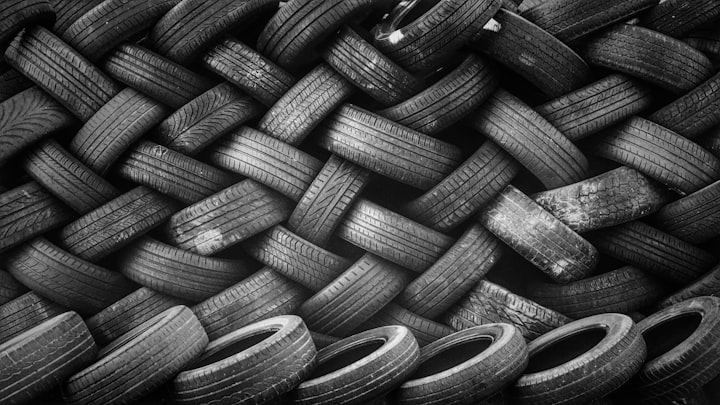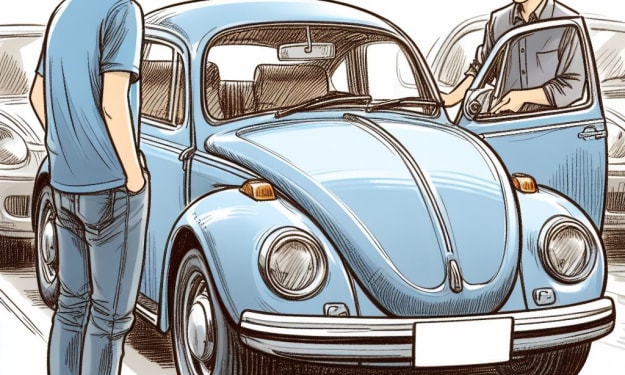Winter Tyres: The Pros & Are They Essential?
Whilst most winters in the UK have not traditionally been as fierce as we see in other parts of the world

Whilst most winters in the UK have not traditionally been as fierce as we see in other parts of the world, the ever-changing climate means that they are starting to become more severe. We are now seeing colder temperatures and increased instances of ice and snow.
Whilst this might be fun for some, it can create some hazardous driving conditions that can result in serious accidents, not to mention many people either becoming stranded, or simply deciding not to leave the house in the first place.
One of the many reasons that the UK seems to come to a standstill at the first flurry of snow whilst other countries carry on as normal under inches of the white stuff is because we tend to be drastically unprepared especially where our vehicles are concerned. Our cars tend to be kitted out for average, fair weather conditions, and so when the heavens open and we get a deluge of the white stuff, they can be much harder to control.
It is for this reason that many people are now considering investing in winter tyres to help get them and their cars through the colder months. That is why in this article FleetEx takes a look at how winter tyres work, what levels of added safety they can offer and whether they are worth fitting to cars travelling on the roads of the UK.
What are winter tyres?
You might think that the tyres on your car are designed for all conditions, and for the most part, you are right. However, in certain weather conditions they can begin to lack grip, and that is when cars start to wheelspin, skid or become beached.
A winter tyre can be identified by the three-peak mountain snowflake on the sidewall or the M+S symbol, as both are industry standards. They tend to be made from a much softer silica-rich compound, and the tread of the tyre can look very different as it has deeper grooves and some narrow cuts within it.
This is to help the tyre remain supple and flex more easily to maintain grip, but it also helps to disperse any moisture on the road through the grooves. Whilst the grooves of normal tyres can quickly fill with snow that becomes compacted and difficult to shift, a winter tyre is capable of maintaining maximum contact with the floor below it and can shake off a lot of the snow that tries to become lodged within it.
These features are designed to help with a number of aspects of driving in snow, including cornering and braking, and they can also help to improve traction. Extensive tests have been carried out and show that in wet conditions, a car with winter tyres on is able to stop significantly earlier than one without.
This is because the grooves in the tyres are capable of shifting water as well as snow, which means that it doesn’t have to be freezing for them to work well. It has even been demonstrated that in snow, a two-wheel-drive car which has had winter tyres fitted is safer than a 4x4 that is using summer tyres.
Winter tyres have not only been found to be effective in snow and rain, but they can also help deal with other tricky conditions such as mud, or wet and slippery leaves.
In countries like Sweden and Austria, winter tyres are a legal requirement during the coldest months ranging from November to April, but in the UK, very few people even own a set. As winter tyres have been shown to outperform summer tyres in temperatures below 7 degrees Celsius, they can be used effectively in the UK from late November all the way through to early March.
Disadvantages of winter tyres
One of the biggest barriers to more people making use of winter tyres is the cost. When many people find the cost of replacing a damaged or defective tyre expensive, it is unlikely that they will pay for a full set of tyres that they will only use for a few months of the year. This is particularly relevant when you consider that winter tyres tend to be more expensive than their summer counterparts.
There is also a lot of work involved in changing a set of tyres, or the expense of having a mechanic do this for you. The option of simply switching to winter tyres full time is also not viable, as once the weather warms up, they have been found to be less safe than summer tyres and will wear much faster.
It is also worth considering where you will keep your tyres when they are not in use, especially if your family has more than one car. They will take up a lot of space in a domestic garage and so it is becoming more and more common to pay to have them stored in a dedicated space. Whilst most car insurers will not have a problem with you fitting winter tyres to your car, you should always make sure that you double check before you do it, just in case.
Whilst there are plenty of initiatives in place to try and reduce the impact we have on our climate; it is unlikely that we will see the benefit of this any time soon. This means that we are in for some long and extremely cold winters, and it will soon become apparent that we cannot simply grind to a halt as a nation when the first snowflake falls.
It is therefore likely that winter tyres will very quickly become a more popular option as they make it possible for people to go about their daily lives without disruption, even when several inches of snow have fallen.
It is likely that more and more people will start to see the purchase of a set of winter tyres as an investment in their own safety, and as more people make the change, our roads will become a lot safer all year round.
About the Creator
Andrea Easton
Andrea Easton is the Head of Finance and Operations at Fleet Ex who specialise in quality ex-fleet/end of lease trucks and trailers and are global leaders in the trucking industry.






Comments
There are no comments for this story
Be the first to respond and start the conversation.